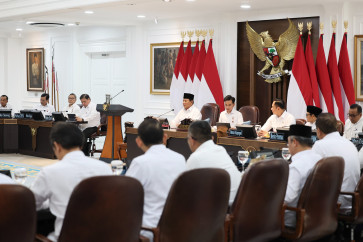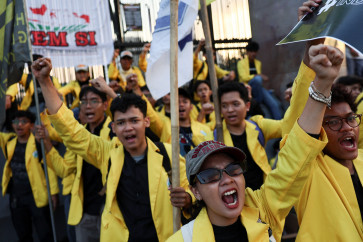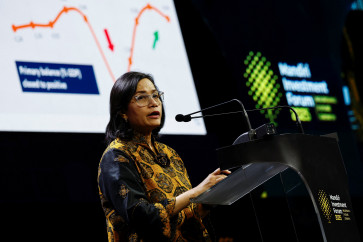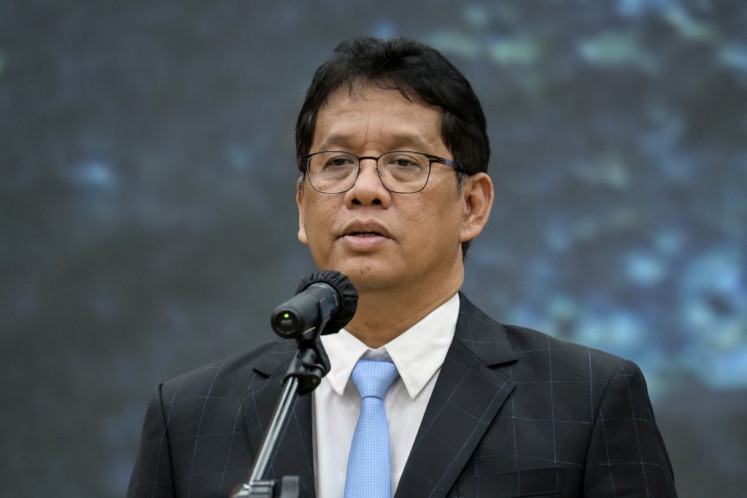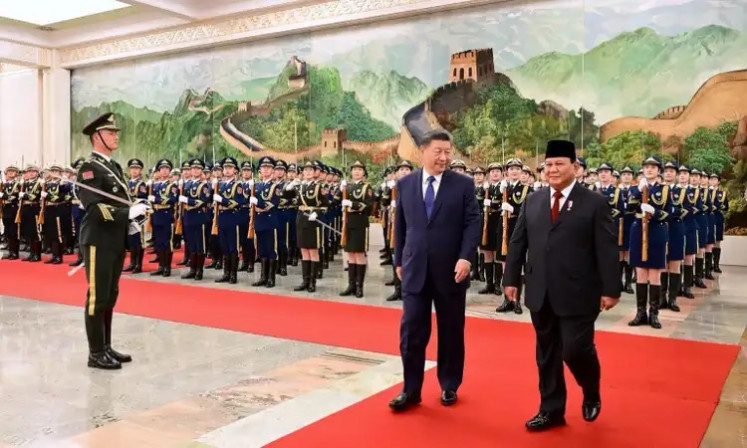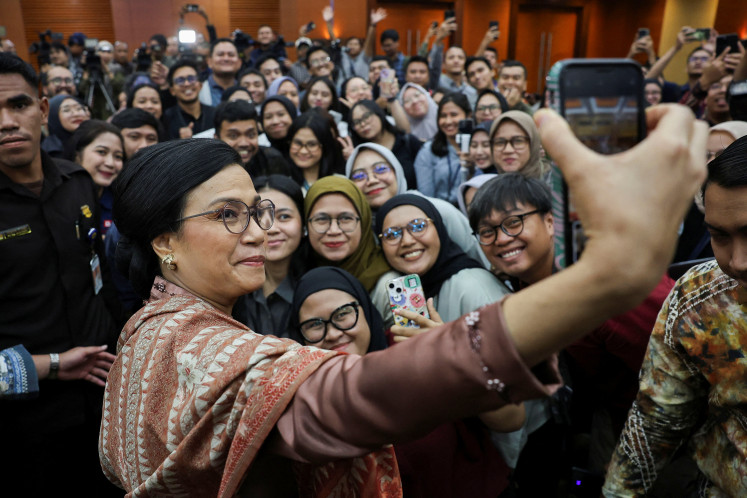Popular Reads
Top Results
Can't find what you're looking for?
View all search resultsPopular Reads
Top Results
Can't find what you're looking for?
View all search resultsJapanese-language students in speech competition
Japanese culture has long been popular in Indonesian society, from its anime and manga to its music, and this has encouraged many Indonesians to learn the Japanese language
Change text size
Gift Premium Articles
to Anyone
J
apanese culture has long been popular in Indonesian society, from its anime and manga to its music, and this has encouraged many Indonesians to learn the Japanese language.
The enthusiasm among Indonesian youth for studying Japanese was seen in a recent Japanese speech contest jointly held by the Japan Foundation and the directorate general of learning and scholarship at the Research, Technology and Higher Education Ministry, as well as Indonesia’s Japan Graduates Association (PERSADA).
The contest was held at the directorate general’s office in Senayan, South Jakarta last weekend, and saw 14 finalists from Bali, Central Java, East Java, Jakarta, North Sumatra, Sulawesi, West Java, West Sumatra and Yogyakarta taking part.
The participants comprised undergraduate students and employees who had won the regional speech contests in their region prior to competing at the national level in Jakarta.
Deputy chief of mission at the Japanese Embassy, Kozo Honsei, said he hoped the contest would forge further cultural links between Japan and Indonesia.
“I hope more Indonesians from outside Jakarta will learn the Japanese language. Through this speech contest, I hope relations between the two countries will become ever closer,” Honsei said.
The general director of the Japan Foundation’s Jakarta office, Tsukamoto Norihisa, said the competition had been held annually since 1972 and was aimed at strengthening Japan-Indonesia bilateral relations as well as encouraging Indonesians to learn Japanese.
“I am impressed to see more Indonesians learning the Japanese language,” Norihisa said.
The winners were chosen based on the content of their speeches, language skills and appearance. They received trophies and electronic equipment from one of the sponsors.
“The winner and runners-up in the contest will represent Indonesia at the ASEAN Japanese Speech Competition in Tokyo in October at a future date,” said Tsukamoto.
Firsta Novika Aghaniyu, from Surabaya, East Java, who won the speech contest, said that she didn’t expect to win.
She said that she signed up for the contest after her former lecturer in the Japanese Literature department of Airlangga University in Surabaya, told her to try her luck in the contest.
“My former lecturer said that she would train me if I was highly motivated for the contest,” said Firsta, who works at a Japanese company in Surabaya.
She won the contest after she delivered a speech with the title “Korek Api” (Matchstick). Firsta told audiences that when she was a child, her friends called her ‘matchstick’ or ‘living skull’ because she was thin like a matchstick.
Since her friends called her ‘matchstick’, she lacked confidence in herself. She believed a matchstick was useless after it was struck.
The first runner-up was Fikri Resata representing Jakarta with his speech titled “Aku dan Kamen Rider” (Me and Kamen Rider), followed by Ita Yuliana from Central Java with her speech titled “Pengaktifan Kembali Jamu” (Reactivating Jamu). (rez)


